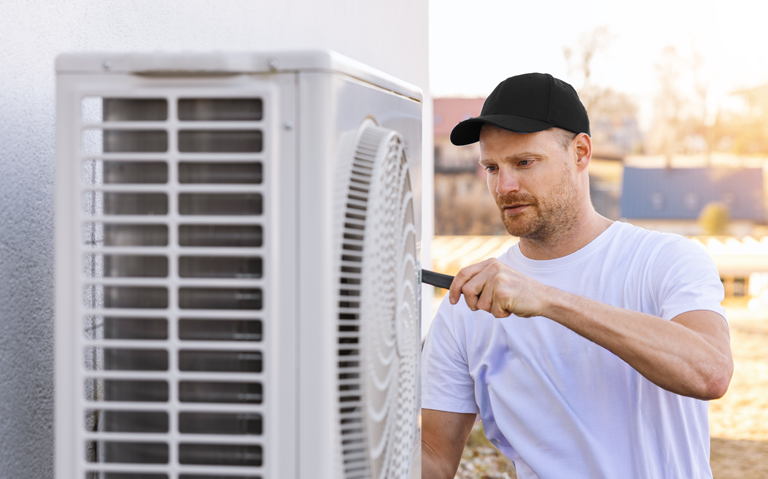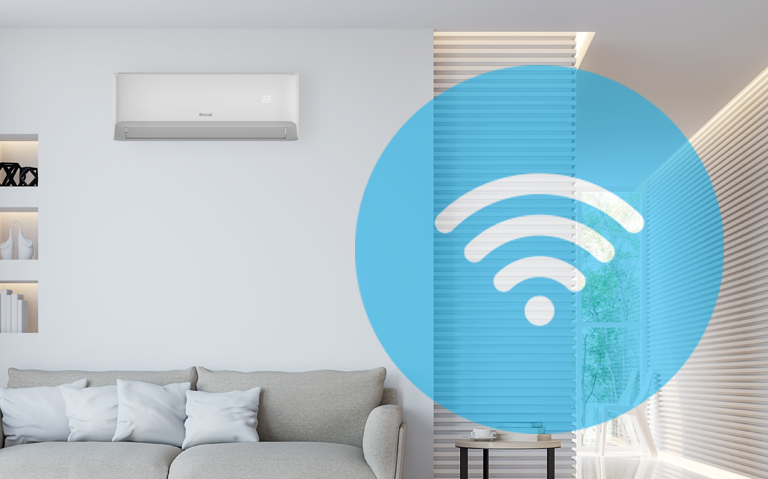When it comes to creating a comfy living space, maintaining the right indoor temperature is crucial. Did you know that the World Health Organisation recommends keeping it between 18 and 22 degrees Celsius? While we often think about heating and cooling systems in terms of convenience and energy efficiency, it’s also important to consider their impact on our health. One technology that plays a huge role in both our comfort and well-being is the heat pump. In this article, we’ll dive into the world of heat pumps and explore how they affect your health and that of your family.
Are Heat Pumps good for your health?
Heat pumps are at the forefront of technology when it comes to home heating solutions, as they use an efficient and effective form of energy transfer that helps your household breathe healthier air while saving you money on electricity bills. But how exactly does a heat pump influence health?
Heat pumps provide improved air quality, consistent temperature and humidity, reduced allergens and noise, and – compared with other heating solutions – less stress on your bank balance.
- Improved Indoor Air Quality

Did you know that heat pumps can actually improve the quality of the air you breathe indoors? Unlike traditional heating systems that rely on burning fuel, heat pumps operate differently. Unlike a fire, they don’t create any harmful byproducts like carbon monoxide or volatile organic compounds. This means that by choosing a heat pump, you’ll breathe easier. By choosing a heat pump, you’re opting for a safer and cleaner heating solution for your home.
- Consistent Temperature and Humidity Levels

Having consistent temperature and humidity levels indoors is essential for your comfort and well-being. Fluctuations in temperature and humidity can cause discomfort, worsen respiratory conditions, and even promote the growth of mould and allergens. Heat pumps are great at maintaining a stable environment, making it less allergen-friendly and more beneficial, particularly for people with asthma or allergies.
- Reduced Air Circulation of Allergens

Traditional heating systems that use forced-air can sometimes spread allergens and particles, causing respiratory irritation and allergies. However, heat pumps function differently. They don’t rely on forced air to distribute heat, which helps minimize the circulation of allergens and pollutants. This leads to a healthier indoor environment.
- Energy Efficiency and Health

The energy efficiency of heat pumps goes hand in hand with better health. By using less energy to operate, heat pumps reduce greenhouse gas emissions and contribute to a healthier environment on a larger scale. Additionally, the energy savings you experience through reduced utility bills can free up resources for investing in other aspects of your health and well-being.
- Noise Reduction for Peaceful Living

Noise can have a significant impact on your overall well-being, affecting both your mental and physical health. The use of traditional HVAC systems can contribute to noise pollution, leading to heightened stress and sleep disturbances. On the other hand, heat pumps operate quietly, creating a peaceful living environment that promotes uninterrupted sleep and an overall sense of calmness. So why not opt for a quieter and more serene space with heat pumps?
Debunking the Myth: Do heat pumps cause colds, sore throats and make you cough?
No, heat pumps do not cause colds, sore throats, or coughs. The idea that heat pumps can cause colds and sore throats might stem from the misconception that they blow cold air into your living spaces. However, this is not entirely accurate. Heat pumps do blow air, but the air they distribute is typically warm, not cold.
- Proper Maintenance is Key:
Like any HVAC system, proper maintenance is crucial to ensure the heat pump functions optimally. A well-maintained heat pump will circulate clean, filtered air throughout your home, which can help improve indoor air quality and reduce the chances of respiratory issues. - Filtration Systems:
Most heat pump systems are equipped with advanced filtration systems that trap dust, allergens, and other particles, helping to create a healthier indoor environment. This filtration process can actually help alleviate respiratory problems rather than cause them. - Humidity Control:
Heat pumps also aid in maintaining proper indoor humidity levels. Dry indoor air during the winter can contribute to respiratory discomfort, while overly humid air can promote the growth of mould and allergens. Heat pumps help strike the right balance, thereby reducing the risk of colds and sore throats associated with extreme humidity levels. - Air Circulation:
Proper air circulation is essential to prevent stagnant air pockets where germs and allergens can accumulate. Heat pumps facilitate consistent air movement, reducing the likelihood of stagnant air and contributing to a healthier living environment. - Personal Hygiene and Environmental Factors:
Cold and flu viruses are primarily spread through person-to-person contact or exposure to contaminated surfaces. The role of a heat pump in causing colds is minimal compared to personal hygiene practices and external factors like exposure to sick individuals.

Simply put, the idea that heat pumps cause colds and sore throats and make you cough is just not true. There is no scientific evidence to support this misconception. Heat pumps are designed to provide efficient heating and cooling while also improving indoor air quality. With proper maintenance, and features like advanced filtration, humidity control, and consistent air circulation, heat pumps actually help reduce the risk of respiratory discomfort.
When it comes to creating a comfortable and healthy living space, your heating and cooling system plays a crucial role. Heat pumps offer a wide range of benefits beyond just temperature control. They help improve indoor air quality, maintain consistent humidity levels, and save energy. So, when choosing a heating and cooling solution for your home, remember that the right technology can create an environment that supports both your comfort and your health.



















